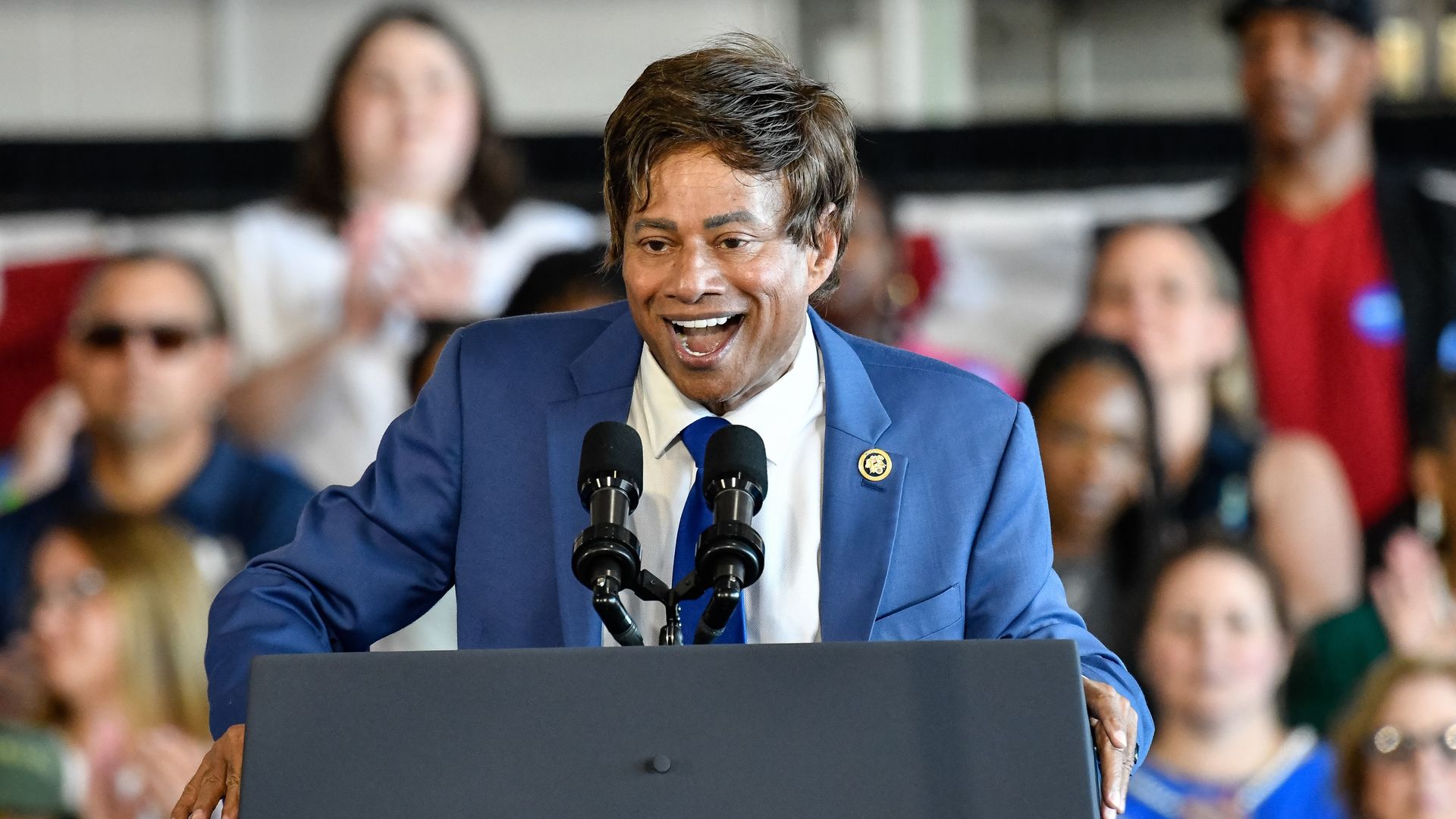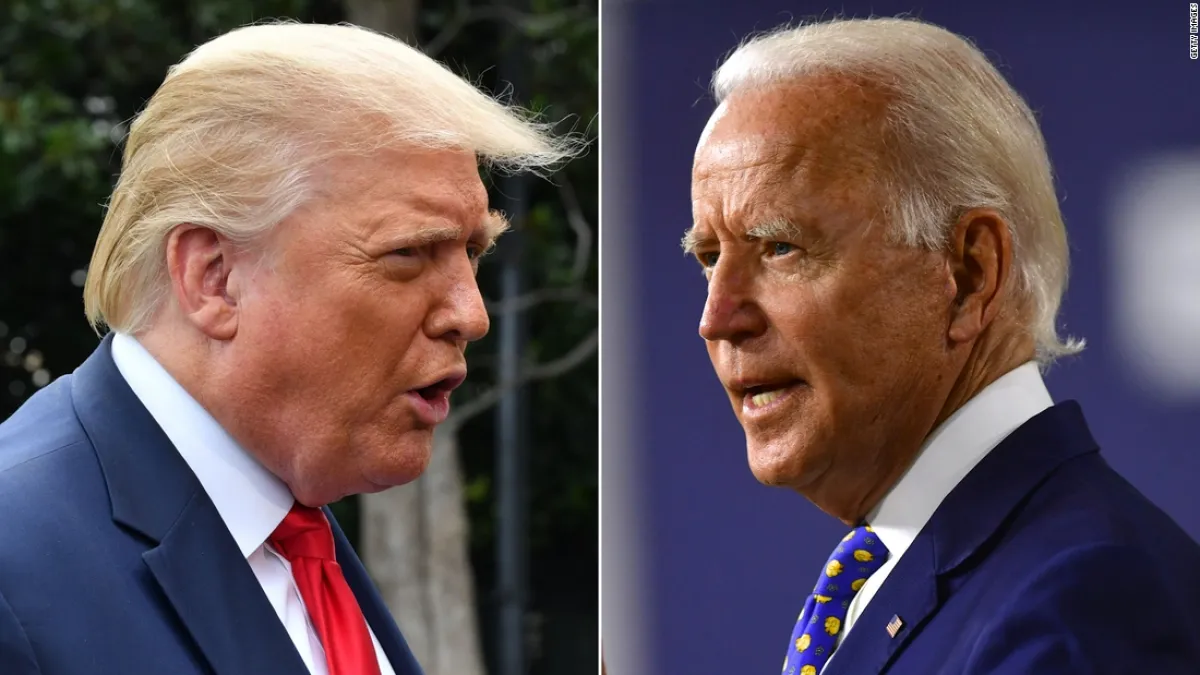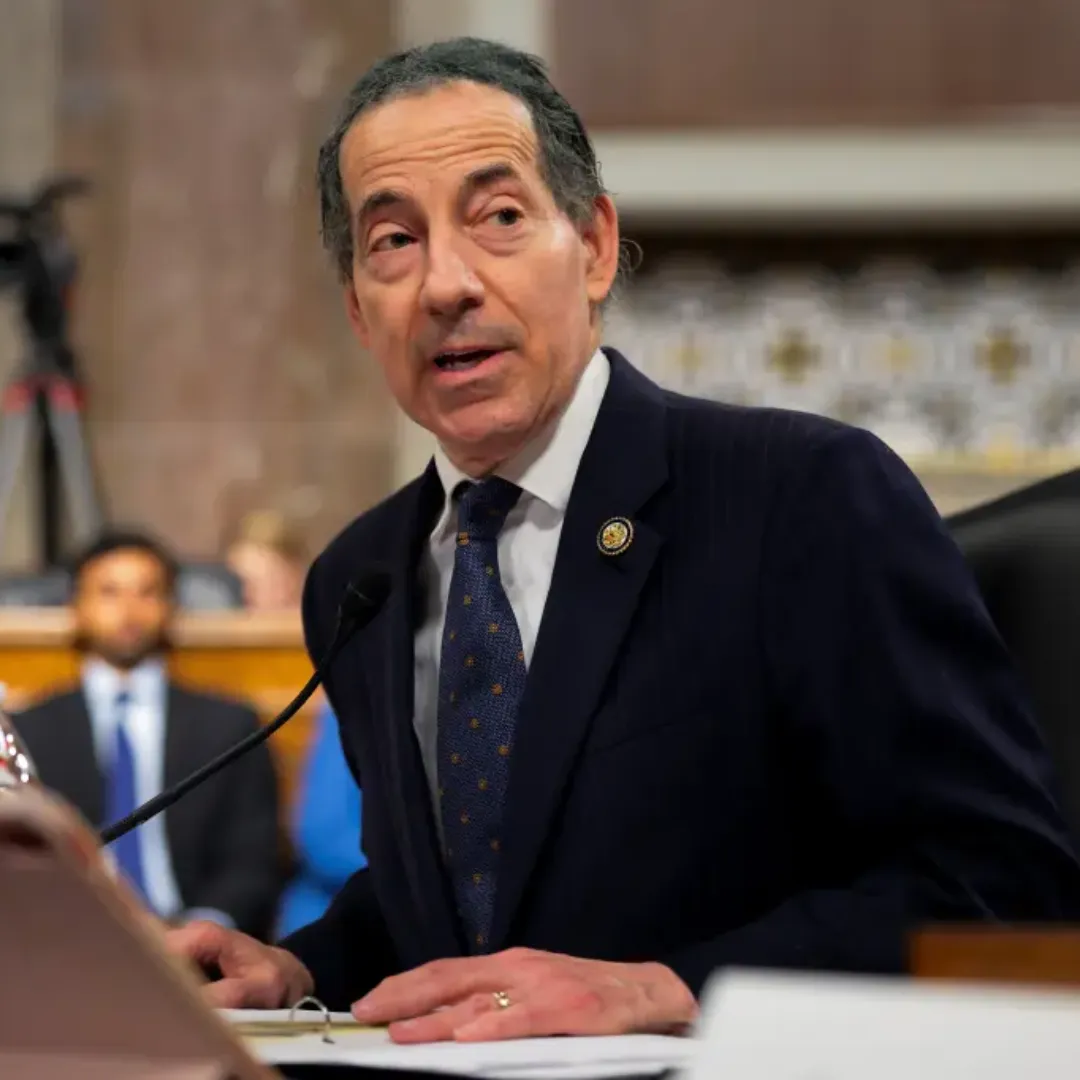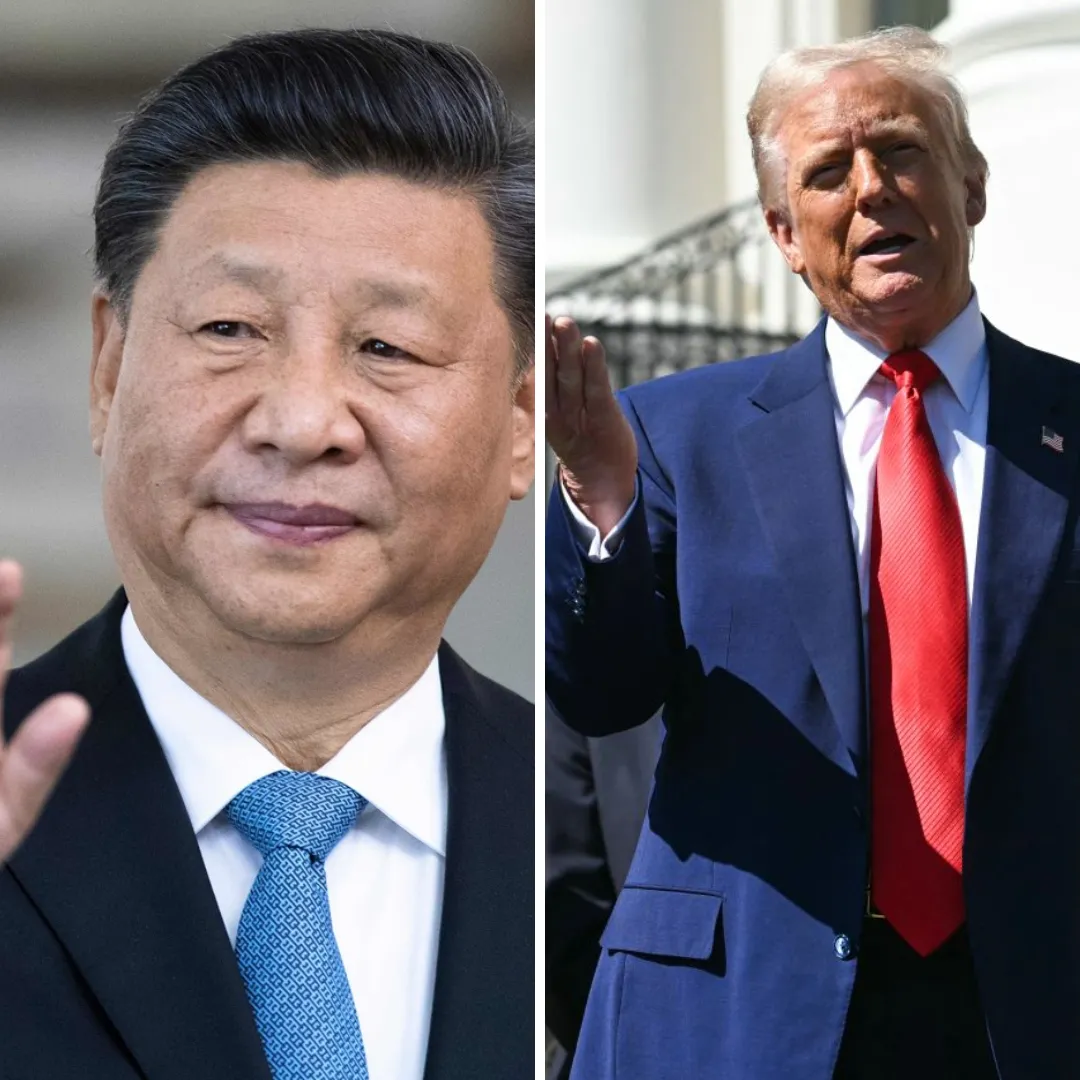
Democratic Congressman Shri Thanedar of Michigan has ignited a new wave of political conflict in Washington by introducing articles of impeachment against President Donald Trump.
The move, announced on Monday, reflects a growing sense of urgency among Democrats who say Trump has consistently violated constitutional norms and dangerously overstepped the bounds of executive authority in his second term.
"I have introduced articles of impeachment against President Trump," Thanedar declared in a video shared on social media. "When Trump ignores the Constitution, Congress, and the courts, he is not ‘fighting for America.’ He is tearing it down and endangering our democracy."
The articles introduced by Thanedar outline seven separate charges. They include alleged violations of the Constitution, unlawful use of executive power, defiance of court rulings, and misuse of government resources.
Among the specific incidents cited is the controversial deportation of Kilmar Abrego Garcia, a man mistakenly expelled to El Salvador despite a unanimous 9–0 Supreme Court ruling barring the action. Thanedar also pointed to the Department of Government Efficiency (DOGE), which he claims has redirected funds without congressional approval.
"Donald Trump has already done real damage to our democracy," Thanedar said. "But defying a unanimous 9–0 Supreme Court ruling, that has to be the one final straw. It’s time we impeach Donald J. Trump."
While the impeachment articles are unlikely to advance in the Republican-controlled House of Representatives, their introduction marks a significant moment in what is shaping up to be one of the most contentious political environments in modern American history.
Thanedar’s actions underscore the level of frustration and fear among Democratic lawmakers who view Trump’s behavior not just as provocative but as an existential threat to American democratic institutions.

Thanedar’s initiative is also a symbolic stand in a broader Democratic strategy to highlight what they see as a pattern of misconduct by the president. In the articles, the congressman charges Trump with abusing executive powers to impose tariffs without oversight, undermining press freedoms by targeting reporters, and engaging in corrupt interactions with the Department of Justice.
One of the more provocative charges accuses Trump of secretly collecting and storing private data on American citizens for political purposes.
"Article seven, tyrannical overreach," Thanedar said. "Finally, and most importantly, he is attempting to consolidate unchecked power and erode the constitutional limits of the presidency."
"In this country, we have presidents, not kings," he continued. "That’s not just misconduct. It’s impeachable misconduct."
Trump, who has shown no signs of changing course or backing down, has continued to assert an increasingly aggressive vision of presidential power. In recent weeks, the Trump Organization began selling “Trump 2028” hats on its official website, reviving questions about whether the president may be preparing to test the two-term constitutional limit and seek a third term.
That possibility has deeply alarmed legal scholars and political leaders alike, with Thanedar’s impeachment push bringing the issue into the national spotlight.
While the president has made such comments in the past, often in a tongue-in-cheek tone, Democrats argue that when combined with his broader authoritarian tendencies, such remarks can no longer be brushed off as jokes.
"If we let this stand, we are saying the president is above the law," Thanedar said. "That the United States Constitution is optional. I won’t be silent and I’m calling on all my colleagues, Democrats, Republicans and independents, to stand up with me."

"Enough is enough. Donald J. Trump must be impeached," he concluded.
The impeachment push has little chance of succeeding legislatively. Under current law, impeachment requires a simple majority vote in the House and a two-thirds vote in the Senate to convict and remove a sitting president.
With Republicans holding majorities in both chambers, the numbers do not favor Democrats. Moreover, many GOP lawmakers have already dismissed the move as partisan grandstanding.
Still, Democrats view the introduction of the articles as an essential moral and political statement. They argue that allowing Trump’s actions to go unchallenged would set a dangerous precedent for future administrations.
By outlining specific constitutional violations and instances of executive overreach, Thanedar hopes to compel lawmakers and the public to confront the consequences of unchecked presidential power.
The move has already gained attention across the country, with progressive activists rallying in support and calling on other Democrats to co-sponsor the articles.
As of Tuesday morning, no other House members had signed on, but sources within the Democratic caucus say discussions are ongoing, particularly among members of the Congressional Progressive Caucus.
Thanedar’s case rests heavily on recent events, particularly the handling of the Abrego Garcia case. Despite a clear Supreme Court ruling barring his deportation, Abrego Garcia was removed from the country by immigration agents, sparking national outrage and accusations of lawlessness from immigrant advocacy groups.

The administration’s response to the incident has only fueled the fire, with officials offering limited explanations and refusing to confirm whether steps will be taken to return Abrego Garcia to the United States.
"This administration is not only ignoring the law, it is actively defying it," Thanedar said. "If a unanimous Supreme Court decision means nothing, then nothing means anything."
In addition to immigration issues, the articles of impeachment highlight concerns about Trump's economic policies. The president's sweeping tariff program has caused volatility in global markets and strained relationships with U.S. allies.
Critics argue that the tariffs have been implemented without appropriate congressional oversight or economic justification, a claim echoed in Thanedar’s filing.
Freedom of the press also takes a central role in the impeachment articles. Thanedar accuses the president of launching "coordinated efforts to silence, intimidate, and delegitimize journalists" who report critically on his administration.
The articles cite several examples in which Trump has referred to the press as the "enemy of the people" and has used federal agencies to restrict access to information.
"This is not only a threat to the First Amendment, it is a fundamental attack on the public’s right to know," Thanedar argued.
The articles also accuse Trump of using the Justice Department as a political weapon. Thanedar says the administration has interfered in investigations, pressured prosecutors, and manipulated legal proceedings for political ends.

The charge of corruption and bribery stems from alleged interactions between Trump and judicial officials, though specific details are yet to be publicly disclosed.
Perhaps the most controversial charge involves the collection of private data. Thanedar claims that the Trump administration has been involved in "covert data aggregation," collecting personal information on political opponents, journalists, and private citizens.
While the specifics of these allegations remain vague, Thanedar insists the charge is based on credible whistleblower reports that warrant investigation.
As the political world digests this latest development, reactions are predictably divided. Republican lawmakers have largely shrugged off the announcement.
Several GOP members referred to the articles as "political theater" and accused Democrats of using impeachment to distract from their lack of a unified legislative agenda. Others argue that the impeachment effort is a strategic blunder that could backfire, energizing Trump’s base ahead of the midterms.
But among Democrats, the mood is one of resolve. While many acknowledge the long odds of success, they argue that failing to act would be even more damaging in the long run.
Some senior Democrats have stopped short of endorsing Thanedar’s move, but they have expressed support for further inquiries into the administration’s actions.
"The Constitution is clear about what happens when a president crosses the line," one House Democrat said on background. "Whether or not the Senate will do its job is another story."

Outside the halls of Congress, the public response has been swift. Civil rights organizations, legal scholars, and grassroots organizers have voiced support for the impeachment articles, praising Thanedar for taking a stand.
Rallies in support of impeachment have already been planned in several cities, and progressive groups are mobilizing phone banks and petitions to put pressure on other lawmakers to join the effort.
As the impeachment debate unfolds, the country faces a broader reckoning about the scope of executive power, the resilience of democratic institutions, and the willingness of elected officials to uphold their constitutional responsibilities.
Whether Thanedar’s articles of impeachment succeed or fail, they represent a growing belief among Democrats that the status quo is untenable and that the time for bold action is now.



